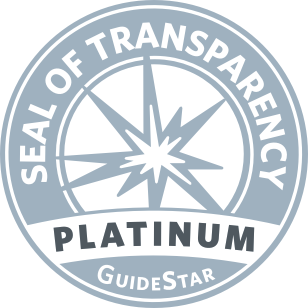New Report: Vitamin A Supplementation Provides No Vision Benefit to RP Patients
Eye On the Cure Research News
The report also concludes that vitamin E supplementation accelerates vision loss for RP patients
A Mass Eye and Ear research team led by Eric Pierce, MD, PhD, director of the Ocular Genomics Institute, and Jason Comander, MD, PhD, director of the Inherited Retinal Disorders Service, has determined that a high-dose vitamin A supplementation regimen does not slow vision loss in people with retinitis pigmentosa (RP). The new findings are from an analysis of additional data from the original 600-plus patient clinical trial at Mass Eye and Ear conducted by the late Eliot Berson, MD, between 1984 and 1991. Dr. Berson was the original director of the Berman-Gund Lab, the first research lab focused on inherited retinal diseases (IRDs) and the first lab funded by the Foundation.
Dr. Berson had reported that vitamin A supplementation modestly slowed loss of vision in people with RP. He also found that vitamin E supplementation accelerated vision loss. In the original vitamin A clinical trial, Dr. Berson measured patients’ vision over time, using the electroretinogram (ERG), a test which measures the retina’s electrical response to light.
While Dr. Pierce and his team found no overall benefit from vitamin A in the new analysis, their findings re-affirmed that people with RP should avoid vitamin E supplementation, because of its negative effect on retinal health. They noted that the AREDS2 supplement, which reduces the risk of advanced age-related macular degeneration (AMD) for those with intermediate-stage AMD, contains vitamin E and should therefore not be taken by RP patients. Regardless of the name or product label of a supplement, people with RP should check ingredients to ensure it doesn’t have vitamin E.
In the follow-up study, Dr. Pierce’s team re-analyzed the original patient data from Dr. Berson’s study along with additional patient data that was collected from the same patients after Dr. Berson’s analysis had ended. The team analyzed data from a total of 765 patients. The team identified the genetic cause of disease in 587 of those patients using blood samples collected from past clinical trials. However, there were not enough patients to definitively identify subsets of patients with specific genetic profiles who responded to vitamin A therapy.
Dr. Comander presented results from the new Mass Eye and Ear vitamin A and E study at the RD2023 meeting on retinal degenerative disease research held October 23-27, 2023, in Torremolinos, Spain. Results from the study were also published in June 2023 in the journal JCI Insight.
The Foundation Fighting Blindness provided funding for both the original and follow-up studies on vitamins A and E and was a sponsor of the RD2023 meeting. Dr. Comander acknowledged the Foundation for its decades-long support of RP research infrastructure at research centers like Mass Eye and Ear. “I am so grateful for this long-term support of the Foundation, without which we would not have been able to produce this invaluable knowledge of how different genetic forms of RP progress over the long term,” he said.
Dr. Comander noted that, at the time, Dr. Berson’s vitamin A clinical trial was groundbreaking because it was the first-ever study for people with RP and remains the largest ever for these patients. However, the results were always controversial in the IRD clinical research community, because vision improvements were minimal and ERGs are not the optimal tool for measuring vision changes over time.
“I feel that the lasting legacy of this study, regardless of the effect of the vitamins, is the detailed description of progression rates of different genetic types of RP,” said Dr. Comander. “It also confirmed how the genetic cause and electroretinogram results can help predict the course of disease, which may be quite helpful for future therapeutic clinical trials which measure progression rates.”
Researchers believe that vitamin A supplements might be harmful for people with Stargardt disease and related cone-rod dystrophies, but patients can eat a normal diet.
Patients should always consult with their physicians about changing any treatment or supplementation regimen. Dr. Comander said that RP patients who have been on vitamin A supplements for many years and feel they are doing well can continue the regimen under continued supervision of their doctor. Yearly liver function tests for patients taking the vitamin A supplementation regimen should be conducted.




